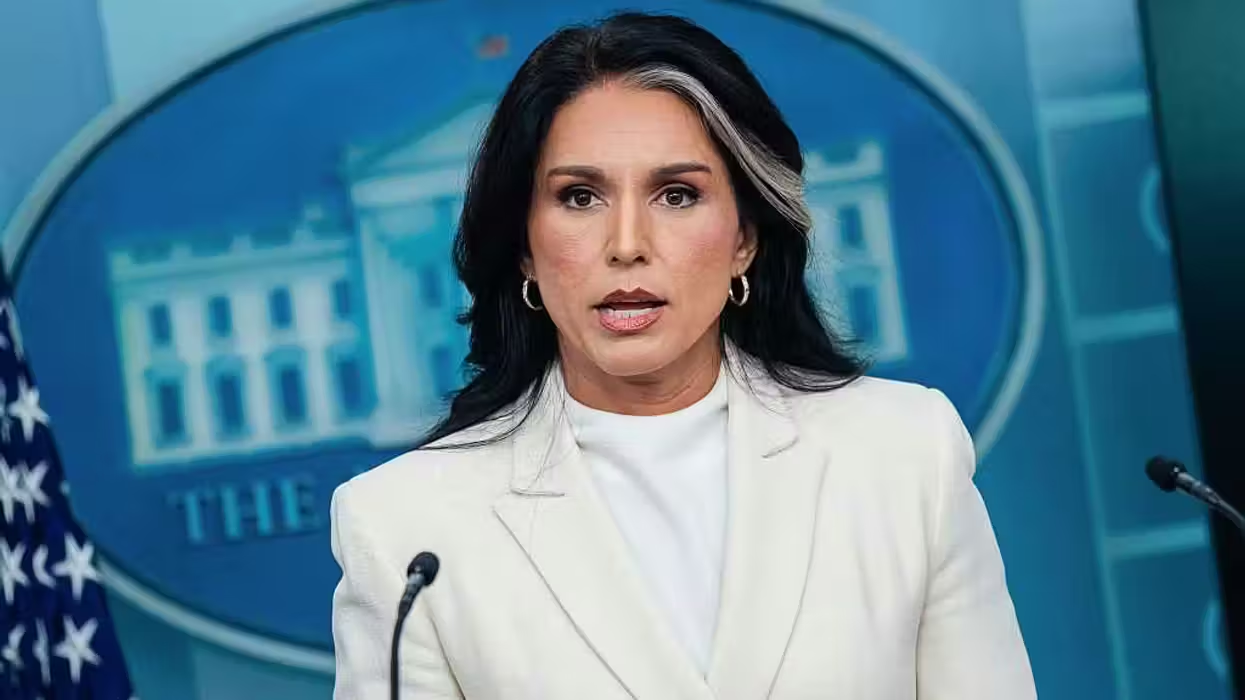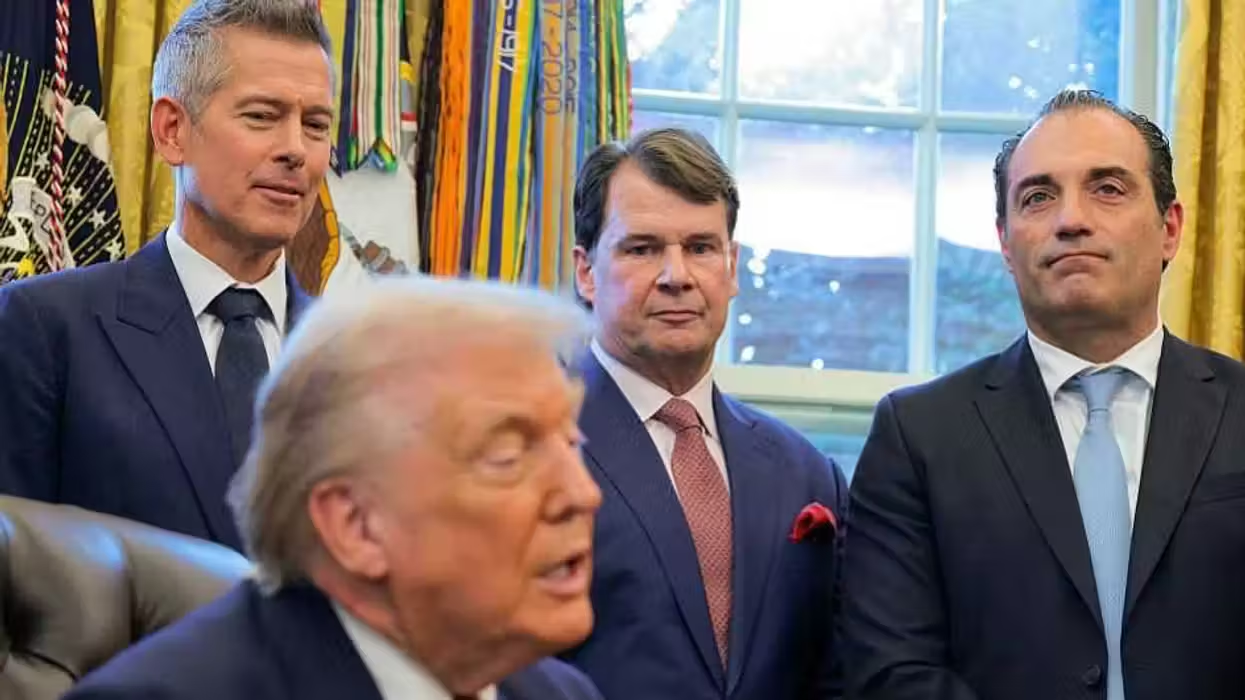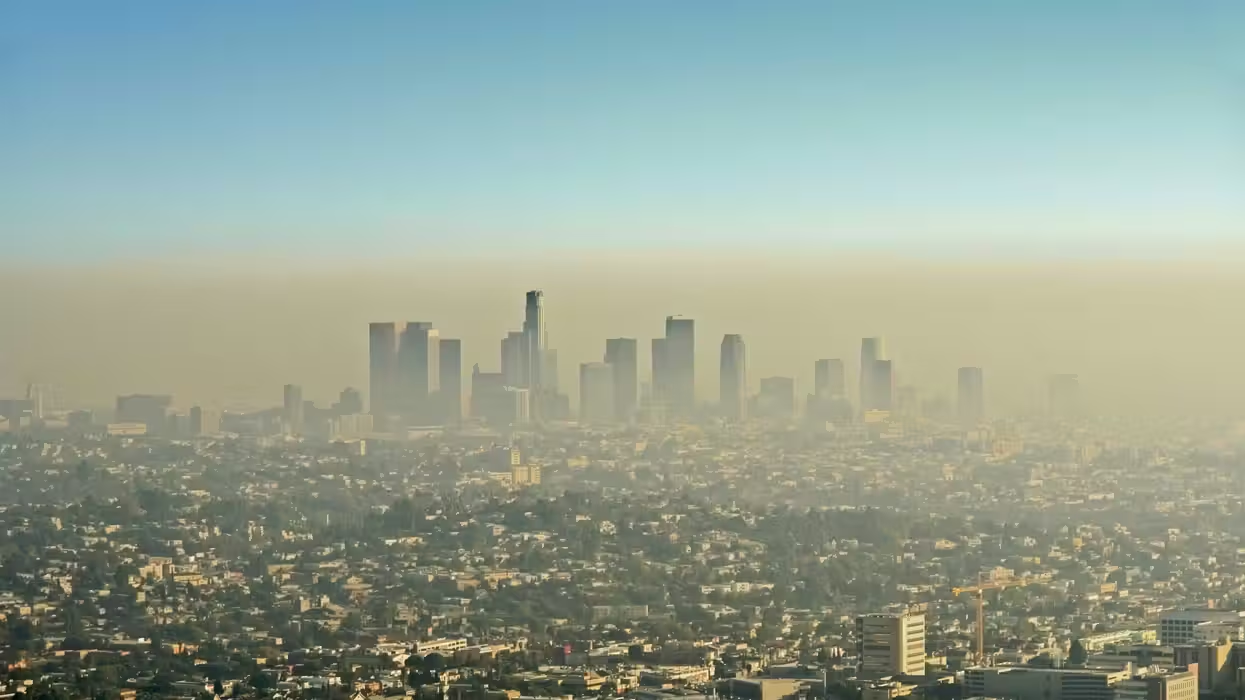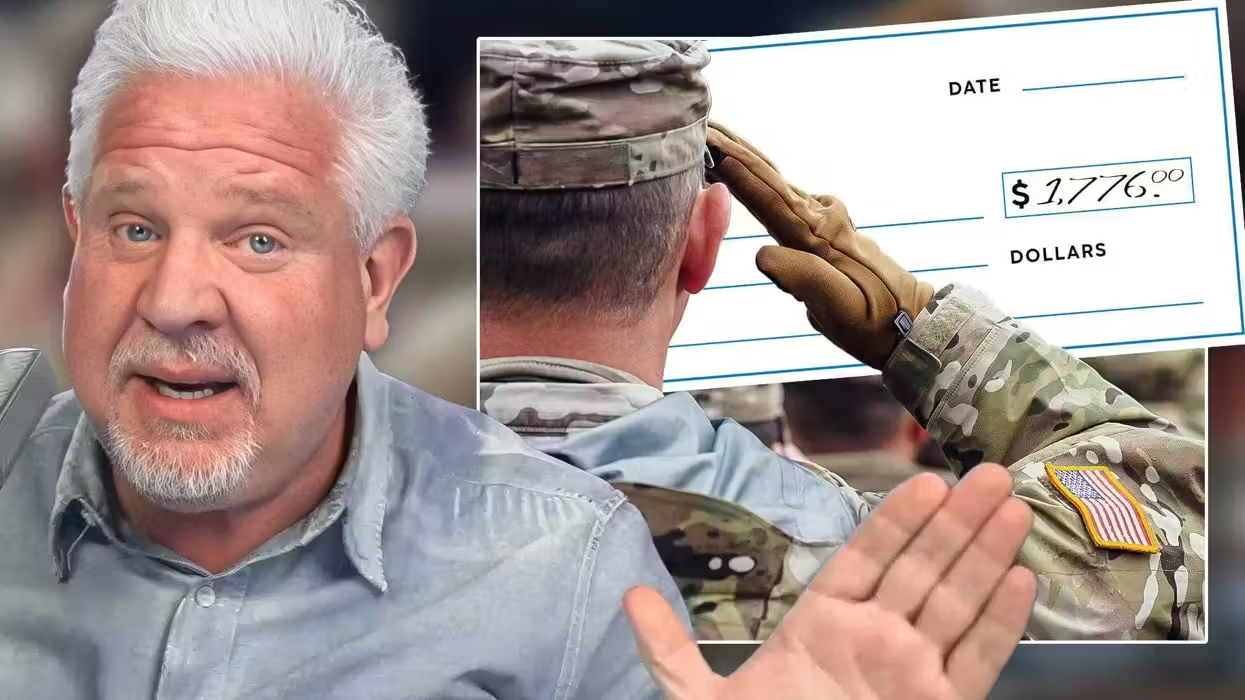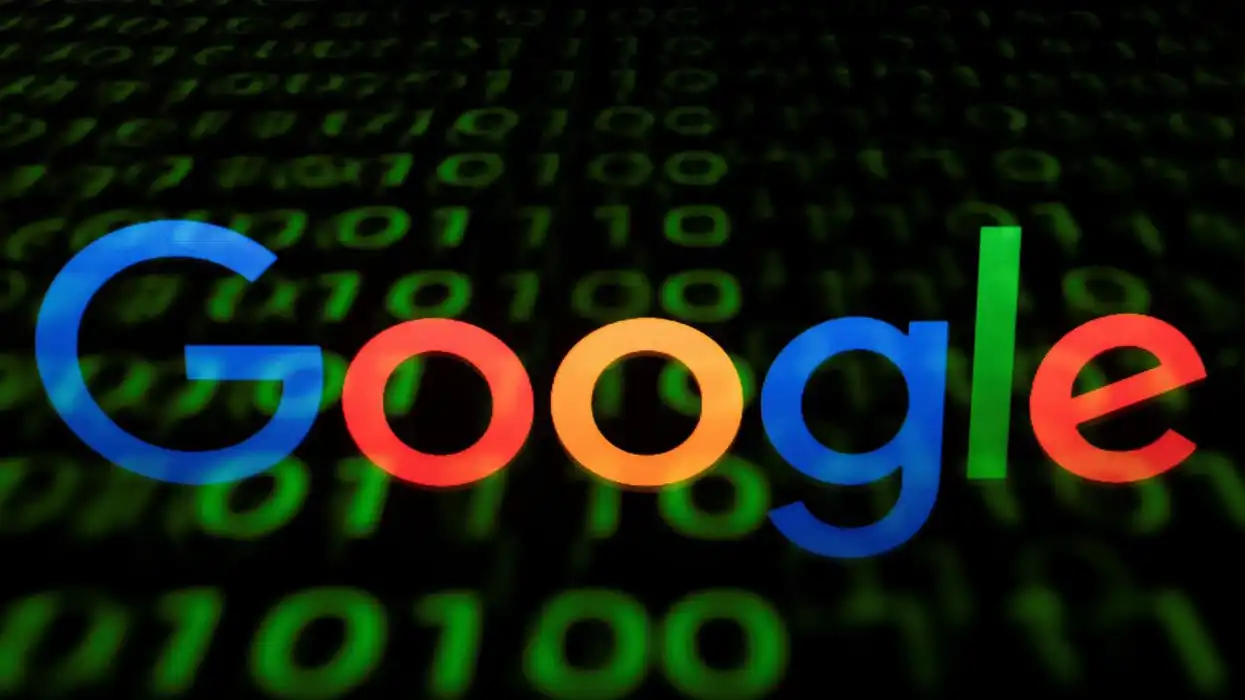
© 2025 Blaze Media LLC. All rights reserved.
Supreme Court to Hear Free Speech Argument From Man Arrested for Harsh Words to VP Cheney
March 21, 2012
"...told him that I thought his policies in Iraq were disgusting..."

In 2006, Steven Howards was taken to jail after touching and having some harsh words with then Vice President Dick Cheney. These actions were seen as threatening by a Secret Service agent who arrested Howards later and presented him with a felony charge of assaulting the vice president. Howards' wife bailed him out of jail and the charges were later dropped, but he didn't let the issue die there.
Today, six years later, the Supreme Court will hear Howards' case that his free speech rights were violated when he was taken to jail over words and a "pat" on the VP's shoulder that he -- and even some secret service agents on the scene -- saw as non-threatening. Howards is suing the secret service agents who arrested him.
This case calls into question the issue if law enforcement can be subject to lawsuits for wrongly made snap decisions made while protecting elected officials.
First, here is some background on the scene, arrest and conflicting accounts in the court case that followed from NPR:
Most of what happened that day in 2006 is no longer in dispute. Steven Howards had just dropped off his eight-year-old son at a piano lesson in Beaver Creek, Colo., when he saw Vice President Cheney standing in the open shopping area near the ski lift, shaking hands and talking to people."I walked up to him and told him that I thought his policies in Iraq were disgusting, and I walked away, and then I left and picked up my child at piano camp," says Howards.
About ten minutes later, Howards was back in the area, but had become separated from his son. The agents, who didn't know Howards had lost track of his son, said they saw him looking anxious.
Agent [Virgil] Reichle of the Denver office went over to Howards and asked if he would answer a few questions about his conversation with Cheney. Howards said no and told Reichle that if he didn't want people accosting Cheney, he should "keep Cheney out of public places."
"The Secret Service agent got furious," Howards says, adding that he quickly found himself handcuffed "with my hands behind my back and I was being charged with felony assault of the vice president."
Even after the charges were dropped a week later, NPR reports, Howards said he got angrier thinking about the incident, which resulted in him being "depicted as a criminal" and tarnished his name. When Howards sought to sue the agents in 2007, Denver's federal court of appeals said it believed the agent was justified in arresting Howards at the time. Howards counters saying that if what he said and the pat on the vice president were truly threatening, he would have been arrested on the spot, not 10 minutes later.
Things become sticky in conflicting reports from Secret Service agents if the actions were actually threatening. Reichle, the arresting agent, did not personally witness the event. NPR reports that two agents who did see Howards say Reichle asked them to change their story to imply the actions toward Cheney were threatening and would therefore merit the arrest:
But two other agents who actually witnessed the encounter between Howards and Cheney, did not support Reichle's account of threatening behavior, and they said Reichle had asked them to change their reports to comport with Reichle's version of events. Reichle has since been transferred to Guam.Reichle, in his deposition, said he believed his fellow agents changed their story to avoid inconveniencing the vice president with a court case. "You would think if it was some sort of misunderstanding, somebody would have tapped me on the shoulder and said: 'Whoa, whoa, whoa, [Virgil], slow down. What you think happened isn't what happened,'" Reichle testified. "At no point did that happen."
Today, Howards will tell the Supreme Court that he believes citizens should be free to express discontent to elected officials without retaliation from law enforcement. Whereas, the majority opinion of law enforcement -- Secret Service in this case -- is that actions taken to protect high-profile officials, especially the president and the vice president, should be exempt from lawsuits, even if it is later revealed they incorrectly evaluated the situation.
Last year when it was announced the Supreme Court would hear the case, the New York Times reported lawyers for the two agents being sued as saying that “concerns over personal liability for making a probable cause arrest should not weigh into agents’ decisions in the field.”
Listen to NPR's coverage of the case here.
Want to leave a tip?
We answer to you. Help keep our content free of advertisers and big tech censorship by leaving a tip today.
Want to join the conversation?
Already a subscriber?
more stories
Sign up for the Blaze newsletter
By signing up, you agree to our Privacy Policy and Terms of Use, and agree to receive content that may sometimes include advertisements. You may opt out at any time.
Related Content
© 2025 Blaze Media LLC. All rights reserved.
Get the stories that matter most delivered directly to your inbox.
By signing up, you agree to our Privacy Policy and Terms of Use, and agree to receive content that may sometimes include advertisements. You may opt out at any time.

